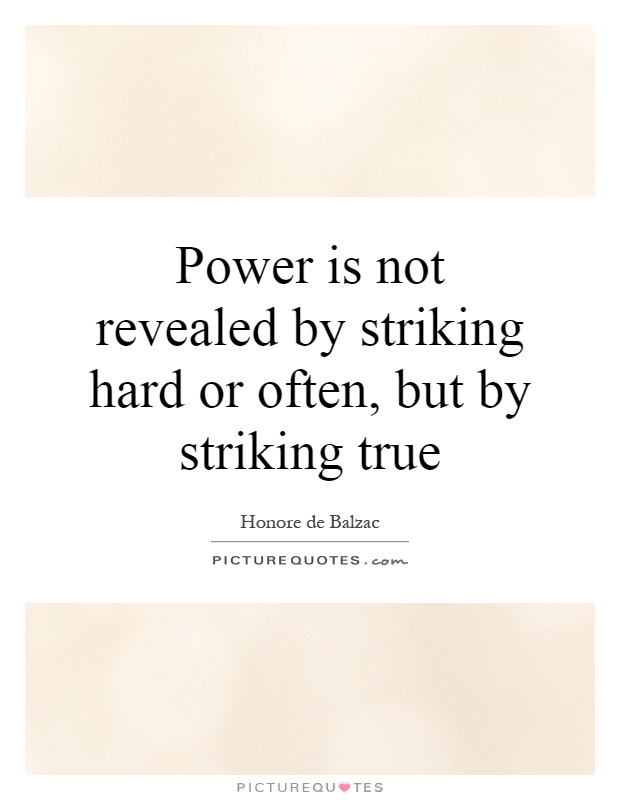Power is not revealed by striking hard or often, but by striking true

Power is not revealed by striking hard or often, but by striking true
In the world of literature, few authors have captured the essence of power and its complexities quite like Honoré de Balzac. His works are filled with characters who wield power in various forms, whether it be through wealth, influence, or sheer force of will. However, Balzac's writings also explore the idea that true power is not simply about exerting force or dominance over others, but about the ability to strike true – to act with precision and purpose.One of Balzac's most famous works, "Père Goriot," exemplifies this idea of true power. The character of Vautrin, a cunning and manipulative criminal, exerts his influence over the other characters in the novel through a combination of charm, intelligence, and strategic thinking. Vautrin does not rely on brute force or aggression to achieve his goals; instead, he carefully calculates his moves and strikes with precision, always aiming for the most effective outcome.
Similarly, in "Lost Illusions," Balzac explores the theme of power through the character of Lucien de Rubempré, a young poet who becomes entangled in the corrupt world of Parisian society. Lucien's rise to power is not achieved through physical strength or aggression, but through his ability to navigate the treacherous waters of the literary and political elite. He strikes true by aligning himself with the right people, making strategic alliances, and using his talents to further his own ambitions.
Balzac's exploration of power in his works goes beyond the traditional notions of strength and dominance. He delves into the psychological and emotional aspects of power, showing how true power is often rooted in self-awareness, intelligence, and the ability to understand and manipulate human nature. Balzac's characters are not simply strong or ruthless; they are complex individuals who understand the nuances of power and use them to their advantage.












 Friendship Quotes
Friendship Quotes Love Quotes
Love Quotes Life Quotes
Life Quotes Funny Quotes
Funny Quotes Motivational Quotes
Motivational Quotes Inspirational Quotes
Inspirational Quotes